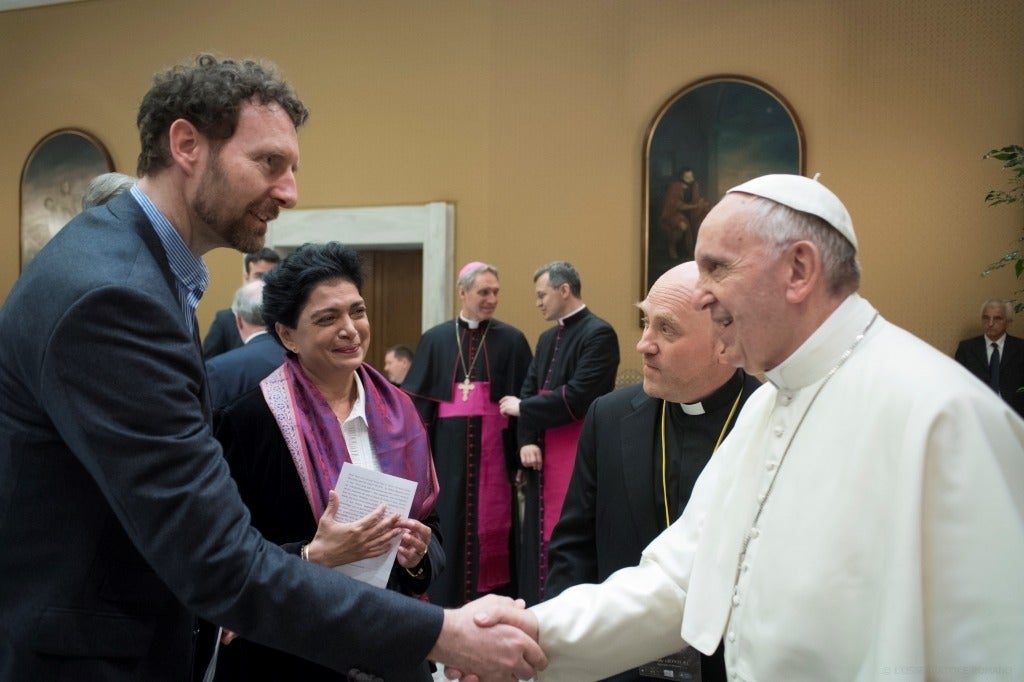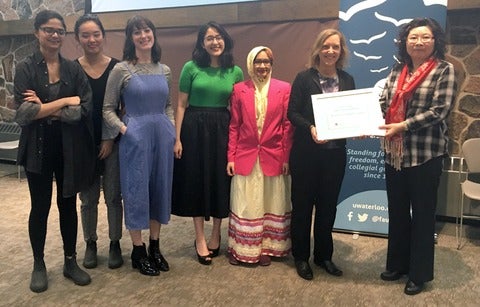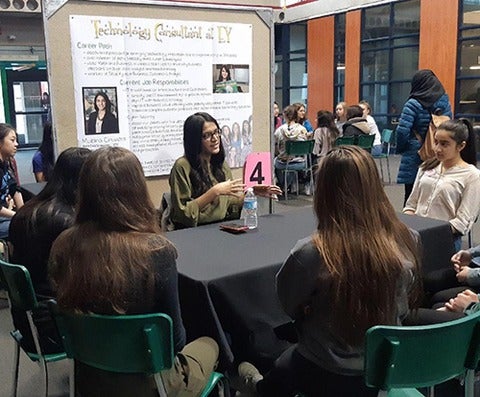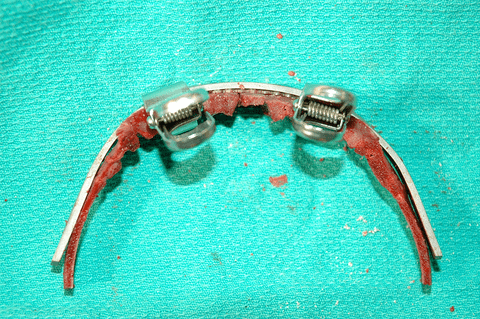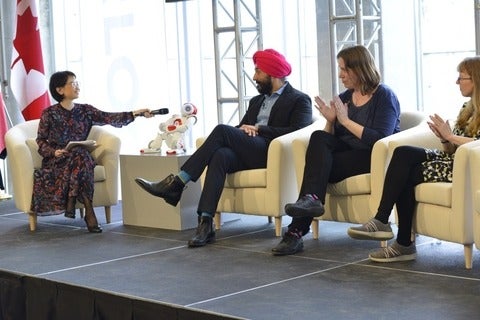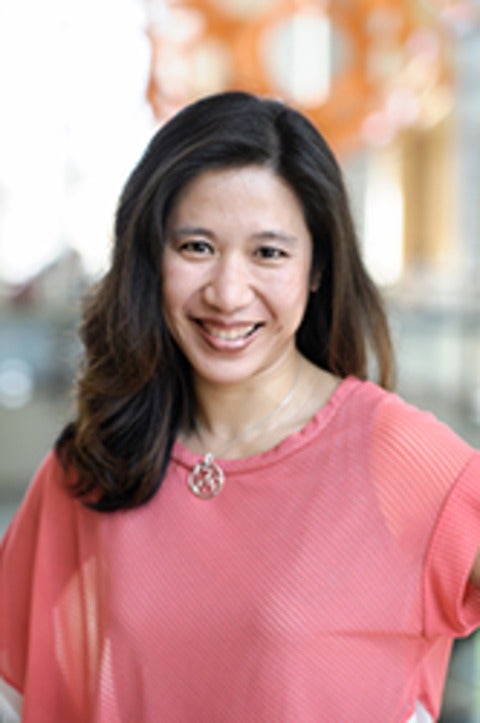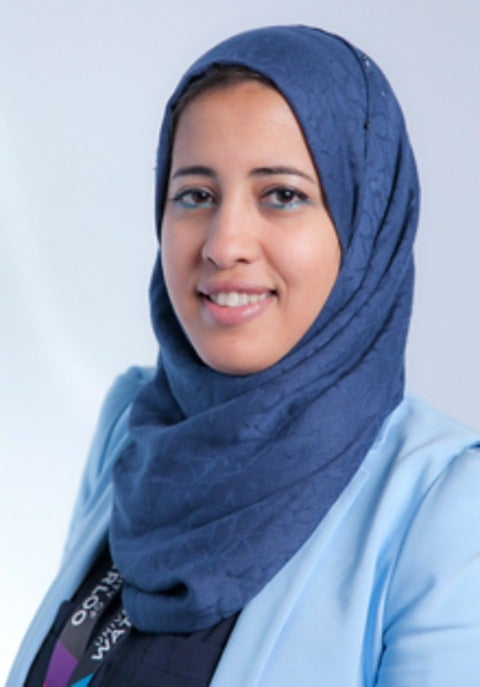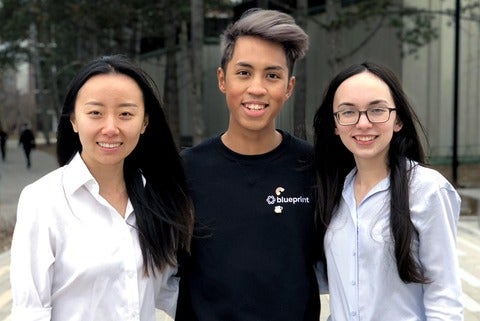News
Filter by:
WiCS receives 2018 Equity and Inclusivity Award
The Faculty Association of the University of Waterloo’s Equity Committee has awarded a 2018 Equity and Inclusivity Award to Women in Computer Science — a group of dedicated undergrad students, graduate students and faculty members that promotes women who are interested in studying computer science and who are pursuing careers in computing.
Waterloo encourages high school girls to Think About Math!
At 14, Mubina Chunari hadn’t chosen her dream job, but she knew she loved math. At the time, she couldn’t figure out how to make a living by loving math and it was holding her back. The only adults she’d met with careers in math were either university professors or her own teachers. Although teaching interested her, she wanted a career outside of academics that would fit more into her personal growth goals.
Optimization techniques guide surgeons at SickKids
Waterloo graduate student David Qian, under the guidance of the Faculty of Mathematics’ Ricardo Fukasawa and Jochen Koenemann, introduced optimization techniques based on integer and dynamic programming to surgeons at SickKids hospital. By applying mathematical optimization algorithms, Qian and team advised doctors on the best surgical cut points to minimize the volume-difference between the surgically modified skull, and an ideal skull.
University of Waterloo launches Artificial Intelligence Institute
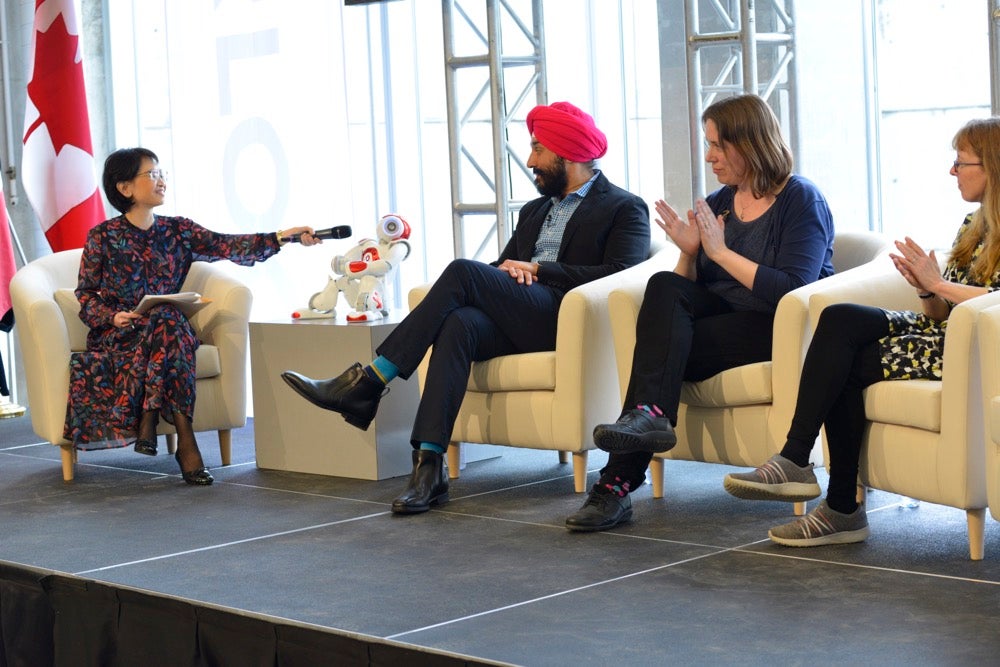
Canada 150 Research Chair joins Department of Applied Mathematics
Anita Layton has been named Canada 150 Research Chair, as part of the Government of Canada’s - Canada 150 Research Chairs Program. Layton is the chairholder for her work in Mathematical Biology and Medicine.
Search results influence people’s decisions about treatment effectiveness
We’ve all done it — felt a cough, headache or fever coming on then searched online for a remedy. If you’re like most people, you’re probably confident you can assess the effectiveness of treatments you find on the web, separating medically beneficial ones from those that are a waste of money, dubious or even harmful.
Bumble bee tracking app places first at Software Engineering Design Symposium
Joint effort with Friends of the Earth Canada to support the Great Canadian Bumble Bee Count
Dinah Shi, John Salaveria and Luisa San Martin won first prize at the 2018 Software Engineering Capstone Design Symposium for their bumble bee tracking app.
Developing protocols for better Off-The-Record encryption
Cryptography done right has become increasingly important as the impacts of poor implementations are being felt by journalists, whistleblowers and political activists around the world.
Math can predict how cancer cells evolve
Applied mathematics can be a powerful tool in helping predict the genesis and evolution of different types of cancers, a study from the University of Waterloo has found.
The study used a form of mathematical analysis called evolutionary dynamics to look at how malignant mutations evolve in both stem and non-stem cells in colorectal and intestinal cancers.
Read the full media release.
